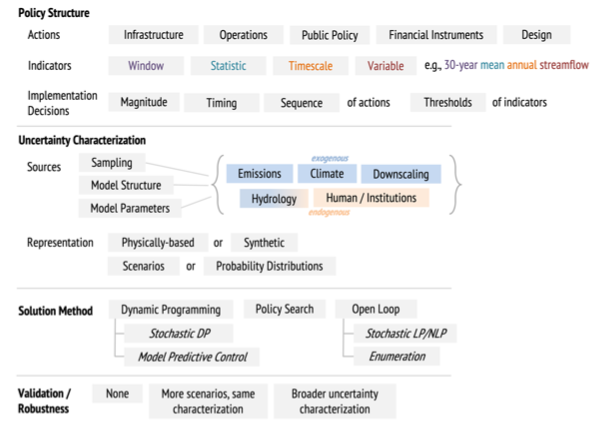Climate Adaptation as a Control Problem: Review and Perspectives on Dynamic Water Resources Planning Under Uncertainty

Fig 2. Overview of dynamic water resources planning under climate change, structured as a control problem.
Posted by
Kathryn BraddockPublished
Abstract
Climate change introduces substantial uncertainty to water resources planning and raises the key question: when, or under what conditions, should adaptation occur? A number of recent studies aim to identify policies mapping future observations to actions—in other words, framing climate adaptation as an optimal control problem. This paper uses the control paradigm to review and classify recent dynamic planning studies according to their approaches to uncertainty characterization, policy structure, and solution methods. We propose a set of research gaps and opportunities in this area centered on the challenge of characterizing uncertainty, which prevents the unambiguous application of control methods to this problem. These include exogenous uncertainty in forcing, model structure, and parameters propagated through a chain of climate and hydrologic models; endogenous uncertainty in human‐environmental system dynamics across multiple scales; and sampling uncertainty due to the finite length of historical observations and future projections. Recognizing these challenges, several opportunities exist to improve the use of control methods for climate adaptation, namely, how problem context and understanding of climate processes might assist with uncertainty quantification and experimental design, out‐of‐sample validation and robustness of optimized adaptation policies, and monitoring and data assimilation, including trend detection, Bayesian inference, and indicator variable selection. We conclude with a summary of recommendations for dynamic water resources planning under climate change through the lens of optimal control.